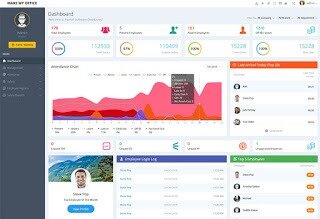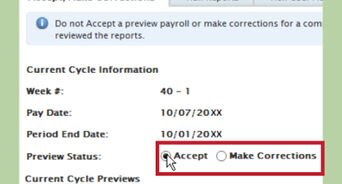Yes, salary is considered an expense and is reported as such on a company’s income statement. Non-operating expenses are separate from operating expenses from an accounting perspective so as to be able to determine how much a company earns from its core activities. Prepaid expenses are transactions the company has already paid for before receiving the product, good, or service. For example, if a company prepaid for a shipment of raw materials, but the supplier hasn’t delivered the materials yet, the amount paid is a prepaid expense. Operating expenses are related to selling goods and services and include sales salaries, advertising, and shop rent.
Opportunity cost refers to the missed opportunity to pursue another option. For example, the opportunity cost of working instead of going to school is that you miss out on an education. The opportunity cost of quitting your job so you can go to school is the loss of income from working. Here are some situations in which it may make more sense to refer to « costs » rather than « expenses » (or vice versa). The IRS has a schedule that dictates the portion of a capital asset a business may write off each year until the entire expense is claimed. The number of years over which a business writes off a capital expense varies based on the type of asset.
An expense is a cost that is « paid » or « remitted », usually in exchange for something of value. « Expenses of the table » are expenses for dining, refreshments, a feast, etc. Business expenses need not be required to be considered ordinary or necessary. Generally, ordinary means that the expense is common in the industry and most business owners in the same line of business or trade would normally expense these things.
An expense in accounting is the money spent, or costs incurred, by a business in their effort to generate revenues. Essentially, accounts expenses represent the cost of doing business; they are the sum of all the activities that hopefully generate a profit. Many expenses are tax deductible, or costs that can be subtracted from your overall gross income, reducing your tax liability at the end of the year.
Tax Deductible Types of Expenses
Cost of Goods Sold (COGS) is the cost of acquiring raw materials and turning them into finished products. It does not include selling and administrative costs incurred by the whole company, nor interest expense or losses on extraordinary items. The purchase of an asset such as land or equipment is not considered a simple expense but rather a capital expenditure. Assets are expensed throughout their useful life through depreciation and amortization. An expense is an item requiring an outflow of money, or any form of fortune in general, to another person or group as payment for an item, service, or other category of costs. Buying food, clothing, furniture, or an automobile is often referred to as an expense.
- Under the accrual method, the business accountant would record the carpet cleaning expense when the company receives the service.
- Take control of your business expenses the easy way – all in one place, from any device – with QuickBooks’ expense tracker.
- Expenses are income statement accounts that are debited to an account, and the corresponding credit is booked to a contra asset or liability account.
- The monthly returns are then compounded to arrive at the annual return.
- This ruling comes as far more Californians work from home than before the pandemic.
Business expenses are subtracted from revenue to arrive at a company’s taxable net income. An income statement reports a company’s revenue, expenses and profit or loss during a specific accounting period. Income statements are also known as profit and loss statements, or simply “P&Ls,” among other names. Capital expenditures are purchases of assets, like vehicles, machinery or business licenses.
Expense Examples
Most have three categories of expenses, broken down by direct costs, indirect costs, and interest. Business expenses are costs incurred in the ordinary course adp workmarket of business. Every business, from the smallest corner store to the largest corporation, tracks these expenses throughout the year for tax purposes.
Hospital margins up in June, though many struggling with costs – FierceHealthcare
Hospital margins up in June, though many struggling with costs.
Posted: Tue, 01 Aug 2023 12:28:02 GMT [source]
ZacksTrade does not endorse or adopt any particular investment strategy, any analyst opinion/rating/report or any approach to evaluating individual securities. Explore these skills and more with Forage’s free accounting virtual experience programs. Discover if finance or accounting is the right career path for you with a free Forage job simulation.
Managing Expense and Expenditures with Accounting Software
An expense is a cost that has expired or been taken up by activities that help generate revenue. Therefore, all expenses are costs, but not all costs are expenses. Indirect costs are subtracted from gross profit to identify operating profit. Typical indirect costs include executive compensation, general expenses, depreciation, and marketing costs. To properly record — and deduct — business expenses, you need to keep documentation.
For example, if a business owner schedules a carpet cleaner to clean the carpets in the office, a company using the cash basis records the expense when it pays the invoice. Under the accrual method, the business accountant would record the carpet cleaning expense when the company receives the service. Expenses are generally recorded on an accrual basis, ensuring that they match up with the revenues reported in accounting periods.
Meaning of expense in English
A type of transaction that highlights this distinction is capital expenditures. Let’s say a company wants to buy a new production plant for $39 million. Rather than paying all at once, the company needs to capitalize this cost for tax purposes. So, the company spreads the $39 million out over the plant’s lifetime. Since buildings typically have a 39-year lifespan by IRS standards, the company would claim $1 million in expenses towards the building every year for 39 years. Anyone in a business or organization can make expenses, but accountants and finance teams are responsible for tracking and reporting these transactions.
It reduces errors inherent in manual data entry and generates accurate financial statements and reports that comply with U.S. An expense is a type of expenditure that flows through the income statement and is deducted from revenue to arrive at net income. Due to the accrual principle in accounting, expenses are recognized when they are incurred, not necessarily when they are paid for. How a company chooses to break up expenses on financial statements largely depends on the primary operating activities of the business. Some companies may divide operating expenses into even smaller categories, such as costs related to marketing activities or technology investments. Other companies may group all operating expenses together as one category, though.
This ruling comes as far more Californians work from home than before the pandemic. Employers permitting remote work must reimburse all reasonable work-related expenses, just as for permissible remote work before the pandemic. Employers that did not do this during government-mandated remote work may now face reimbursement liability they did not anticipate. Our blog articles are written independently by our editorial team. See at the expense of; go to the trouble (expense); money (expense) is no object. Upgrading to a paid membership gives you access to our extensive collection of plug-and-play Templates designed to power your performance—as well as CFI’s full course catalog and accredited Certification Programs.
COGS is deducted from an entity’s total revenue to determine gross profit for the year. Expenses that are included in calculating COGS may include direct labor costs, factory overhead, storage, costs of products, and costs of raw materials. Operating expense is deducted from revenue to arrive at operating income; the amount of profit a company earns from its direct business activities. Companies need to manage their operating expenses to ensure that they are maximizing profits; this is usually done by keeping expenses at a minimum; however, reducing expenses too much can reduce the company’s productivity.
expense American Dictionary
Non-operating expenses are the opposite of operating expenses — costs that are not directly related to a business’s core function. Extraordinary expenses are costs incurred for large one-time events or transactions outside the firm’s regular business activity. They include laying off employees, selling land, or disposal of a significant asset. It must be (1) ordinary and (2) necessary (Welch v. Helvering defines this as necessary for the development of the business at least in that they were appropriate and helpful).
Expenses may be fixed — that is, stable despite changes in production volume or service delivery — or variable, meaning they fluctuate. The interest on the van and the delivery driver’s salary are fixed expenses, while fuel and tolls are variable. By gaining a better understanding of the nuances of various expenses, business owners can decide where to spend more, where to cut and how to project payables to keep cash flow in focus. Keeping track of fixed and variable expenses can be helpful in determining the breakeven point for product pricing. More important, it’s a budgeting tool to minimize fixed costs when times get tough.
- So, it’s treated differently than a business expense like advertising a weekend sale on paint.
- This costs money, but also adds long-term value in the form of real estate to the business.
- The former are the expenses directly related to operating the company, and the latter is indirectly related.
An expense is what you spend on the goods and services to keep your company running. Expenses can be for physical items, such as a furniture maker buying wood to make chairs. Or they can be other efforts that help drive your company toward revenue, like the commission you pay a salesperson. They typically include the costs of computers, furniture, property, equipment, trucks, and more. Note that the Tax Cuts and Jobs Act made changes to what’s deductible, along with rules around depreciation, tax credits and more. For example, companies can no longer deduct the costs of entertaining customers at sporting events, though meals are partially deductible.
The last section of the income statement involves expenses for interest and tax. Interest is the last expense a company subtracts to arrive at its taxable income, sometimes called adjusted taxable income. Accounts payable automation, or AP automation, brings together tools and a set of best practices to automate the manual aspects of approving, classifying, tracking and paying valid business expenses. Payroll, often one of the largest expenses, can also be part of AP automation by sending payroll tax liabilities to AP for payment each period. The term « expense » implies something more formal and something related to the business balance sheet and taxes. An expense is an ongoing payment, like utilities, rent, payroll, and marketing.




